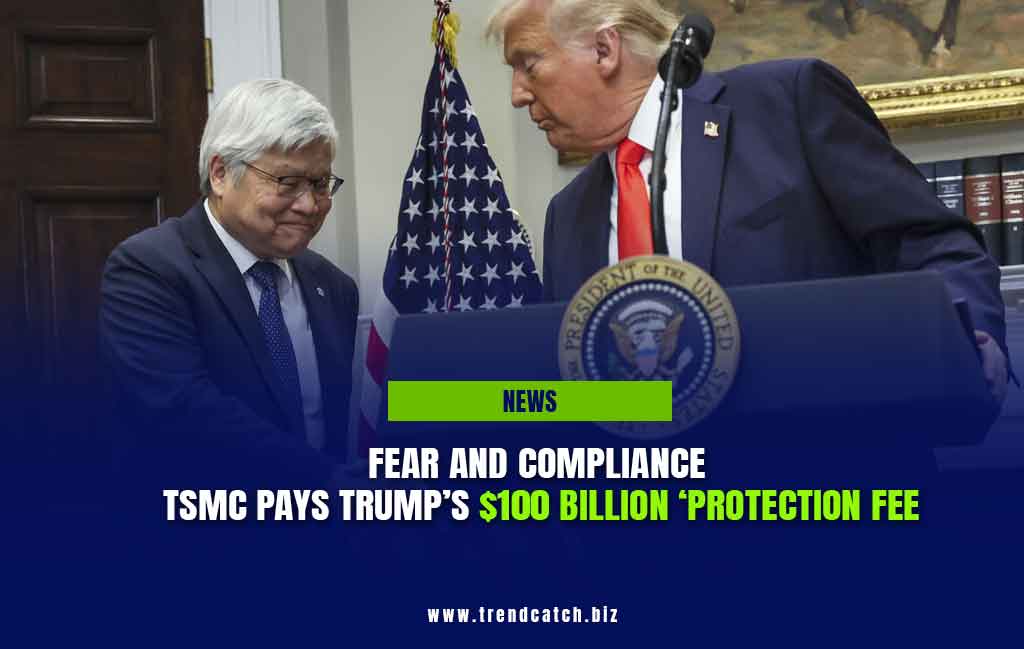“TrendCatch News delivers the news you need, faster and clearer.”
A surprise White House ceremony saw President Donald Trump announce a $100 billion investment from Taiwan Semiconductor Manufacturing Company (TSMC), calling it a deal with the “world’s most powerful company.”
But in Taiwan, the news sparked fear. Critics, including former President Ma Ying-jeou, accused the ruling Democratic Progressive Party (DPP) of paying a “protection fee” to the U.S., warning of a “national security crisis.” Taiwan’s President Lai Ching-te reassured citizens that TSMC’s U.S. investment wouldn’t weaken its presence at home.
Taiwan’s Silicon Shield at Risk?
TSMC produces over 90% of the world’s advanced microchips, making it a critical global player. Many in Taiwan see this as their “silicon shield” against a Chinese invasion. But Trump’s rhetoric—suggesting Taiwan should pay for U.S. protection—has raised doubts about American support.
The phrase “Ukraine today, Taiwan tomorrow” resonates as Trump aligns with Moscow while distancing from traditional allies. His administration even briefly suspended military aid to Ukraine before reinstating it under new conditions. Some fear Taiwan could be next.
A Strategic Gamble
TSMC’s CEO CC Wei emphasized that U.S. expansion was driven by customer demand, not pressure. Despite receiving $6.5 billion in U.S. subsidies, he assured that Taiwan remains the company’s innovation hub. Analysts call it a “smart” move, ensuring flexibility while easing Trump’s concerns.
Trump’s Economic Leverage
Unlike Biden’s subsidy-driven approach, Trump favors tariffs as leverage. He has threatened a 25% tariff on semiconductors, pushing companies like Apple, Oracle, and SoftBank to pledge billions in U.S. investments. Experts believe Samsung, Intel, and SK Hynix will face similar pressure.
Economist Chang-Tai Hsieh warns: “Once you agree to blackmail, there’s no end to it.”



Unlike Biden’s subsidy-driven approach, Trump favors tariffs as leverage. He has threatened a 25% tariff on semiconductors, pushing companies like Apple, Oracle, and SoftBank to pledge billions in U.S. investments. Experts believe Samsung, Intel, and SK Hynix will face similar pressure.